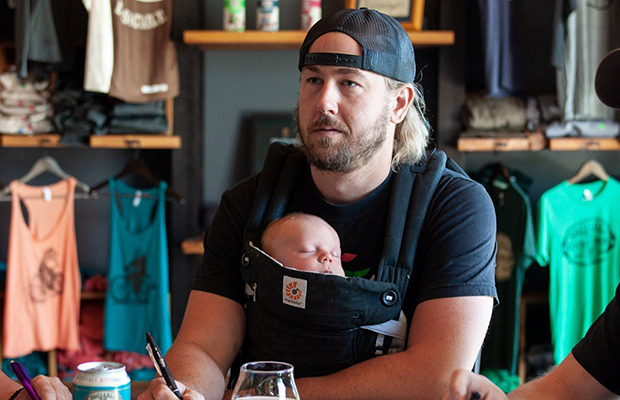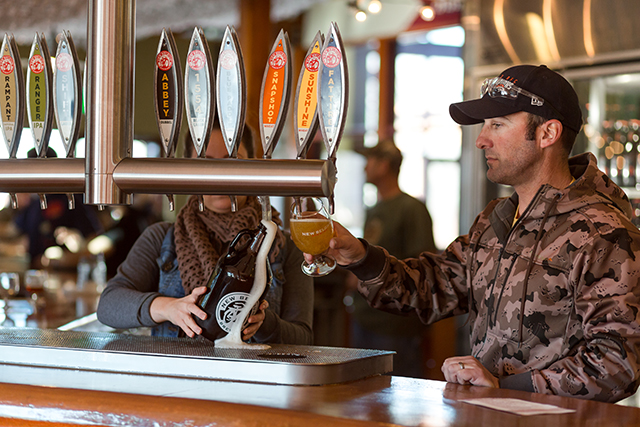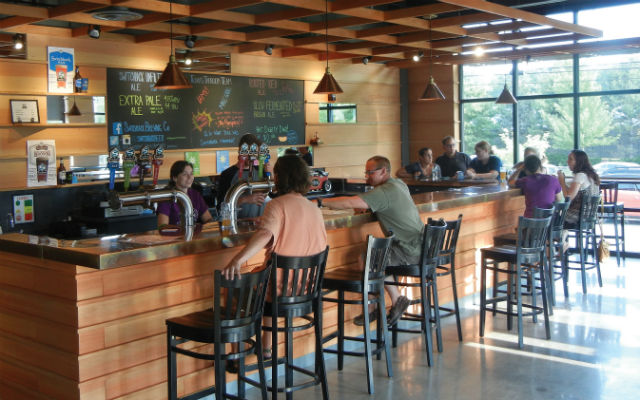
This is a part of a monthly series of Q&As with members of the cider community from across the U.S. Brewer Magazine will share business and personal insights from decision makers in the cider industry to help you get to know each other better and learn more to better develop your own brand.
Jim Watkins, Managing Director/Development, Sociable Cider Werks — Minneapolis
BREWER: How do you feel your job has had to adapt in the craft beverage market compared to a few years ago?
WATKINS: Well, the market is a whole lot more competitive than it was when we launched in 2012. Which means we always have to be forward looking and innovative. Standing out in the face of fast-changing craft beverage trends means we are looking two seasons forward. From my perspective 2020 is already over. We have a product lineup ready, forecasts agreed upon, and an execution plan in place. That means its time to start planning for what will help us stand out in 2021.
WATKINS: This list is long. We have so many excellent operators in Minnesota beverage, I try to soak up everything I can get from the staggering amount of experience and history in our state. In the early stages I leaned heavily on Michael Jones the head winemaker at Scott Labs for cider and wine making technical guidance. Locally, Niko Tonks, head brewer at Fair State Brewing coop is one of my favorite sounding boards. Mostly because I’ve yet to float an idea by him he thought was too wacky, even when they clearly are. On the business side, I love talking shop with Tom Whisenand from Indeed Brewing. He and his partners run a very tight shop, and since they started a couple years before us, its always fun to hear Tom reflect on their past challenges. More often than not, we seem to experience similar pinch points, albeit on a delayed timeline. It’s reassuring to know there is a light at the end of the tunnel when we are confronted with those inevitable small business challenges.
WATKINS: We launched this business with a pretty critical eye on the cider business. We saw a category that craft drinkers didn’t take seriously, the next 0.5% of the market alco-pop of the day. Our goal was to approach cider more in the vein of American craft beer. That eye drives our approach to marketing, packaging, innovation, and customer experience. I saw some Neilson data recently that showed that cider is almost 4% of the beer market in Minnesota. We were certainly not the only contributors to that, but we feel like we helped move the ball forward. We’re pretty proud of being a part of growing a robust cider category in Minnesota.
BREWER: Can you touch on something your cidery has added lately that’s unique or making your business more successful (it could be equipment, technology or people)?
WATKINS: We just implemented a training program for our production staff that kind of turns the brewery/cidery staff hierarchy on its head. We have noticed that Sociable is starting to be recognized as a pretty solid training ground. Many of our people have gone on to lead teams elsewhere. It’s great that we can provide that springboard, but every time we’d lose someone it would leave us scrambling to fill the role. On the other side of that coin, it would take someone leaving to provide upward mobility to get the next person trained up. Long story short, we decided it was time to kill the “you sweep floors until someone leaves” model of hiring and promotion. Instead, we built a training and scorecard system for our team. We slightly over staff, and then rotate through all parts of production; cellar, packaging hall, hot side, lab, maintenance etc. This way someone on the floor should always be learning something new. It’s still pretty new to our operation so we are ironing out some wrinkles, but so far, so good. The best part about this setup? When someone masters a new skill, we bang on a cowbell. More cowbell, baby.
BREWER: If you had one business strategy that you could implement to better the craft cider industry, what would it be?
WATKINS: Start thinking more like brewers and less like winemakers. Collaboration in the wine business sucks. Everyone is fighting to sell a commoditized grape varietal for a specific price point. $10 Pinot Noir, $20 Cab, $15 Sauv Blanc, etc. Sure the beer category has a price range the market will bear, but standing out is about showing how you interpret a style even if its in a non-conventional way. Collaboration is everywhere. In effect the craft beer space has resisted the commoditization of the category. I don’t see many cidery operators leaning into that ethos.






Be the first to comment